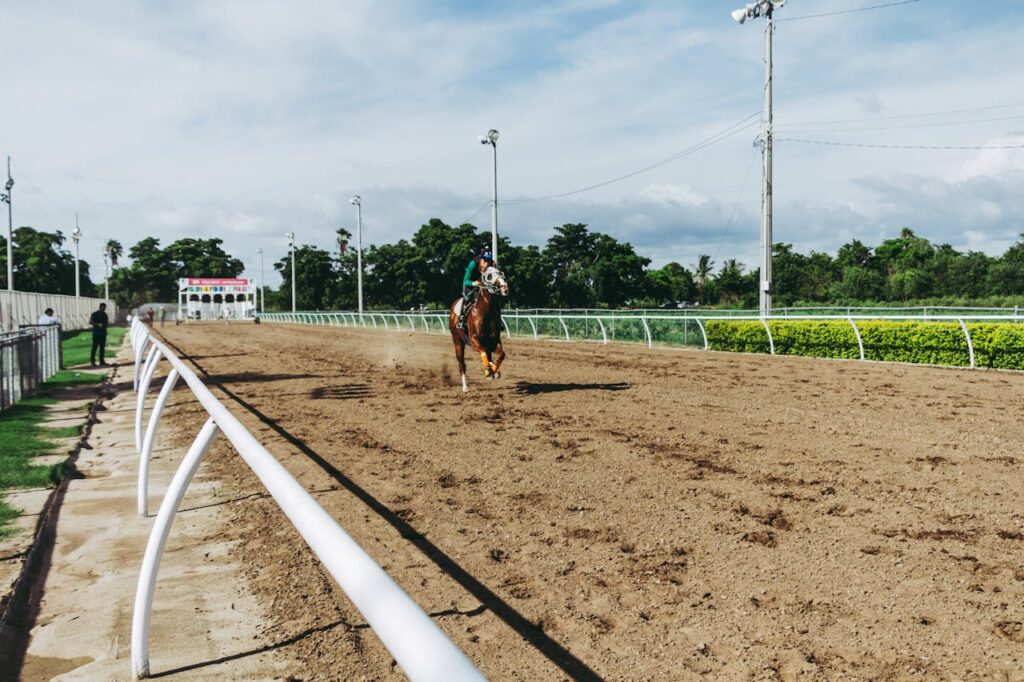There are few more lucrative businesses in the world than horse racing, with the sector able to contribute billions to governments and other industries on an annual basis.
Some of the biggest events on the calendar will have a major impact on the local regions, with some businesses able to ensure their long-term future after welcoming fans from across the world for one day a year.
The sector is only getting bigger on an annual basis, with one of the most famous taking place every November in the form of the Breeders’ Cup. You can find the latest 2025 Breeders’ Cup odds here. But, how does the sport have such a major impact on the global economy?
Creating Jobs
One of the reasons for racing being one of the most important sectors to the global economy is due to the sheer number of jobs that have been created due to the sport.
Millions of professionals work within the sector, including trainers, jockeys, and stable staff that work with the animals on a daily basis. Meanwhile, other jobs in the sector include administrative staff, vets, and farriers, and all play a crucial role.
In the U.S., it is reported that around 240,000 people work in the sector, while the number of those in the United Kingdom that work in racing stands at just under 100,000.
Tax Revenues
The sport is a major player to the economy for local governments due to the tax revenues that come out of the sport. That includes income taxes for those working in the industry, as well as betting taxes, and taxes on sales of horses.
The sector contributes billions to the economy in the United States, while it is one of the single most important industries in the United Kingdom. However, in the UK, there have recently been protests surrounding potential changes to tax in the sport, which could have a damaging impact on the prize money, and participation of those involved within the sport.
Leading jockeys in the UK joined the strike, which could potentially have a damning impact on jobs in the industry. It was revealed that the government changes could see a 15% increase on tax rate paid by bookmakers, which could have resulted in a loss of £330 million in the industry.
Tourism
It isn’t just the general sport itself that benefits from racing, as local regions also gain economical advantages. Hosting major events will have a profound impact on the number of visitors to the region, with events such as the Breeders’ Cup, the Kentucky Derby, and Cheltenham Festival all attracting global visitors on an annual basis.
One of the biggest racing dates in the diary comes in the form of Royal Ascot, which welcomes visitors from Japan, Australia, and the United States annually. To put into context, the Kentucky Derby has a major impact on the local region in Louisville, with the sport bringing in nearly $400 million to local businesses annually.
Therefore, like hosting the World Cup or Super Bowl, holding major racing events can lead to an economical boom in local regions.
Breeding
Horse racing is one of the few sports where there are so many different elements that pull in the same direction to ensure that it is commercially successful. One of the most important of these is the breeding sector, which will have a direct impact on the quality of horse that is seen on track.
For viewers, they wish to see the very best on track, and the breeding is the secret behind making a champion. The main goal when breeding is create a horse with the desired attributes to win major Graded races throughout their careers. A number of factors are taken into account in this industry, with stud fees and yearling sales both taken into account.
Horses that achieve proven success at the highest level are typically worth more once they retire, with their stud fee increasing based on the success of their progeny. One of the most successful in the modern era has been Galileo, who’s stud price was $700,000.
Racecourses
One of the most important revenue streams in the sport is the success achieved by all racecourses. Major races such as the Grand National and Kentucky Derby ensure long-term success at Aintree and Churchill Downs, respectively.
However, the smaller courses will need to rely on offering high-quality racing, as well as other events to get punters through the door. Many excel on this front, with live bands and family fun days both regularly ensuring that attendance figures are able to remain high on those tracks that don’t host regular graded races.
Sponsorships are also important for racecourses, with the most famous that have televised media coverage able to demand massive prices to be featured on the advertising boards.
https://www.africanexponent.com/how-horse-racing-industry-impacts-global-economy/


